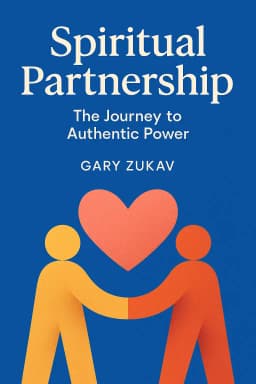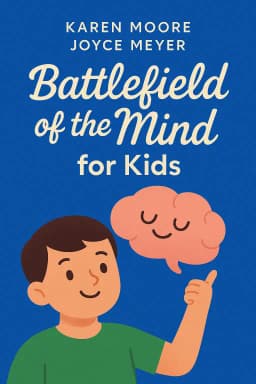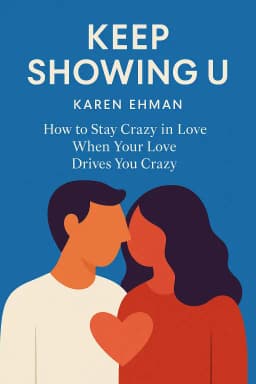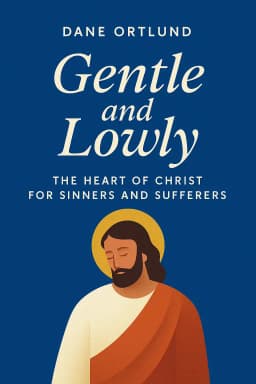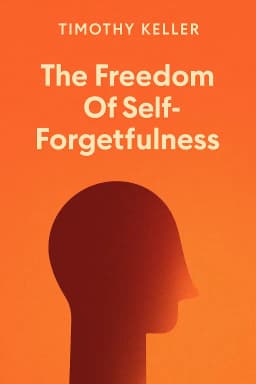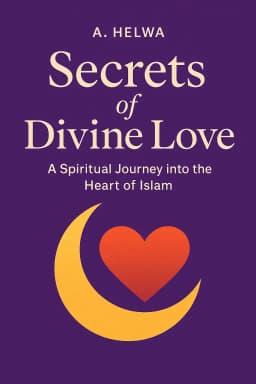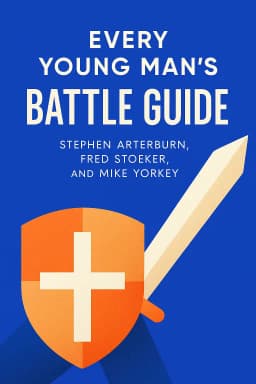
The Purity War Playbook
Golden Hook & Introduction
SECTION
Daniel: Alright Sophia, I'm going to say the title of a book, and I want your gut reaction. Every Young Man’s Battle Guide. Sophia: Sounds like a manual for medieval LARPing, but with more guilt. Is there a chapter on jousting with temptation? Daniel: You are surprisingly close. It’s less about jousting and more about strategic retreats and mental warfare. Today we are diving into Every Young Man’s Battle Guide by Stephen Arterburn, Fred Stoeker, and Mike Yorkey. This book, and the whole series it's a part of, has sold millions of copies, becoming a foundational text for a generation of young men in evangelical circles. Sophia: Millions? For what sounds like a very niche topic? What’s the secret sauce? Daniel: I think a big part of it is the raw honesty. What makes this book so potent, and honestly, so enduring in those communities, is that one of the authors, Fred Stoeker, was incredibly open about his own long-term, post-marriage struggle with pornography. This wasn't abstract theory; it was born from a personal crisis. He’s a Stanford-educated guy who, by his own admission, was a committed Christian but couldn't break free for years. Sophia: Okay, so it's a 'do as I say, not as I did... until I figured it out' kind of guide. That's actually a compelling angle. It’s not some perfect guru preaching from a mountaintop. It’s someone who’s been in the trenches. So what's the actual plan? How do you fight this 'battle'?
The Battle Plan: A Three-Perimeter Defense for the Mind
SECTION
Daniel: The central metaphor is right there in the title: it's a battle. And the book lays out a very clear, military-style strategy. It’s called the three-perimeter defense. The idea is that sexual temptation attacks you on three fronts: your eyes, your mind, and your heart. So you need to build a wall around each one. Sophia: A three-perimeter defense. It sounds like defending a castle. What's the first wall? Daniel: The first perimeter is the eyes. This is the most famous, and maybe most critiqued, piece of advice from the book. The authors argue that for men, temptation is primarily visual. The strategy is to train your eyes to "bounce." Sophia: Bounce? Like a basketball? Daniel: Exactly. The moment your eyes land on something or someone sexually stimulating—a provocative ad, a person on the street—you train yourself to immediately, reflexively, look away. Bounce your eyes to something neutral, like a fire hydrant or a tree. The book tells a story about a young man named Garrett, a ministerial student, who was struggling. He felt he couldn't even read his Bible because his mind was so full of lustful images. But when he started practicing bouncing his eyes, he found the mental noise quieted down, and he could finally focus on scripture. Sophia: I have so many questions about that. First, this sounds exhausting. It’s like you're a soldier on patrol 24/7 in your own head. Can anyone actually live like this without becoming incredibly anxious and hyper-aware of everything they're not supposed to be looking at? Daniel: That is the core criticism. Does it create freedom or a prison of hyper-vigilance? The book argues it's about building a new reflex, so eventually, it becomes automatic. But you're right, many people find that it just makes them more obsessed with what they're trying to avoid. It's the classic "don't think of a pink elephant" problem. Sophia: Exactly! And what's the second perimeter, assuming the enemy gets past your bouncing eyeballs? Daniel: The second perimeter is the mind. If a lustful thought gets through, the instruction is to "take it captive." This comes from a verse in 2 Corinthians. You don't just let the thought run wild; you actively stop it, challenge it, and replace it with something pure or holy. You essentially arrest the thought at the border of your mind before it can set up camp. Sophia: Okay, thought-policing. Got it. And the third perimeter? The heart? Daniel: The third perimeter is the heart. This is the deepest level. The idea here is to cultivate authentic Christian love and a commitment to being a blessing to others, especially women you date. If your heart is genuinely set on honoring someone as a person made in God's image, it's harder for lust, which is about objectification, to take root. It’s about changing your fundamental desires, not just managing the inputs. Sophia: That last one sounds the most healthy, but it's also the most abstract. The first two—bouncing eyes, capturing thoughts—feel like very intense, moment-to-moment behavioral tricks. It seems like a huge amount of effort to put into just... not thinking about something. It makes me wonder what the stakes are. Why is this battle so critical?
The Theology of Purity and Its Cultural Fallout
SECTION
Daniel: And that's the perfect transition, because you can't understand the intensity of the strategy without understanding the theology behind it. The stakes are set incredibly high. The book quotes Ephesians 5:3, which says, "But among you there must not be even a hint of sexual immorality." Sophia: Not even a hint? That's... an impossible standard. A hint could be anything. A stray thought, a glance that lasts a millisecond too long. That sounds like a recipe for constant failure and guilt. Daniel: For many, it was. This book didn't appear in a vacuum; it was a cornerstone of the 'purity culture' movement of the 90s and early 2000s. And that "no hint" standard was central. The book illustrates this with a story about a young Christian couple who had been dating for a while. They were both virgins, but they eventually have premarital sex. The author writes that from that moment on, the boyfriend's "moral compass shifted." He starts looking at porn, cursing, disrespecting his parents—his entire character supposedly unravels from this one act. Sophia: Wow. That is... a lot. That's classic purity culture messaging, isn't it? This idea that your sexuality is this fragile, pristine thing, and one mistake shatters it, leading to total moral collapse. It's been so heavily criticized for creating immense shame, especially for young women, but clearly for men too. It frames sex not as a part of human life to be integrated healthily, but as a catastrophic spiritual landmine. Daniel: Precisely. And this book was a massive force in shaping that view. It has a generally positive reception among its target audience, but the critiques from people who grew up in that culture are powerful. They talk about the deep-seated fear and shame it instilled. The idea that if you stumble, you're not just making a mistake; you're fundamentally damaged goods. You've lost the "battle" in a very permanent way. Sophia: And it creates this weird dynamic where marriage becomes the 'finish line' where you can finally stop fighting this desperate war. The book even says God has a "special person waiting for you," which frames your future spouse as the prize for winning the purity battle. Daniel: It does. It presents marriage as the only acceptable, God-sanctioned outlet for sexuality. Which, again, is a standard Christian teaching, but the way it's framed here as the ultimate reward for years of brutal warfare can put an immense amount of pressure on that future relationship to be perfect. Sophia: Speaking of relationships, this brings me to another point of major controversy. The book claims to teach young men how to honor women. But does it?
Honoring Her or Objectifying Her? The Woman's Role in the Battle
SECTION
Daniel: This is probably the most complex and criticized part of the book's legacy. On the one hand, it's telling young men to move beyond pure physical attraction and to respect women. On the other hand, the way it frames that respect is... interesting. The key analogy the book uses is a biblical story, Nathan's Parable of the Lamb. Sophia: Okay, I'm not familiar. Lay it on me. Daniel: In the Bible, the prophet Nathan tells King David a story to convict him of his sin of taking another man's wife, Bathsheba. The story is about a rich man with many flocks and a poor man who has only one little ewe lamb. He loves this lamb; it grew up with him and his children. But when a traveler comes to the rich man, instead of taking one of his own sheep, he steals the poor man's beloved lamb and serves it for dinner. Sophia: That's horrible. So David is the rich man, and Bathsheba is the lamb. Daniel: Correct. But here's how Every Young Man's Battle applies it. The book says the girlfriend is the lamb. Her father is the poor man who has cherished her. And the young man, the boyfriend, is the rich man who, by pushing her sexual boundaries, is stealing the father's precious "lamb." Sophia: Hold on. A woman's purity is... property? A lamb? She has no agency in this story at all. She's just a thing to be protected by her father and potentially stolen by her boyfriend. How is that honoring her? She's not even a character in her own moral story; she's a possession being fought over by two men. Daniel: And you have just articulated the central feminist critique of this book and much of the purity culture literature. This is where it gets a lot of heat. In its effort to protect and honor, the framework can inadvertently reduce women to two roles: a temptation to be avoided or a prize to be won. The advice on how a girl should dress modestly, for example, is framed around helping the man in his battle, placing the responsibility for his thoughts on her choices. Sophia: Right. It becomes her job to manage his lust. If he stumbles, it's because her skirt was too short. It's a subtle but powerful form of objectification, even when it's wrapped in the language of "honor" and "protection." It's not seeing her as a whole person with her own journey, but as an object that has an effect on him. Daniel: It's a profound tension. The authors, particularly Fred Stoeker with his personal story, are clearly trying to help young men do the right thing and avoid the pain he experienced. The intention is to foster respect. But the framework they use—this language of battle, prizes, and property—can lead to an outcome that's the opposite of genuine, person-to-person respect.
Synthesis & Takeaways
SECTION
Sophia: So when you step back and look at the whole thing, it's such a mixed bag. Daniel: It really is. You have this powerful, well-intentioned framework for personal discipline, born from a real man's raw and honest struggle. It has given millions of young men a practical, step-by-step plan to deal with something they feel overwhelmed by. For some, that's been a lifeline. Sophia: But that practical plan is built on a theological foundation that, for many others, has led to a culture of shame, anxiety, and fear. The all-or-nothing stakes are incredibly high. Daniel: And its advice on relationships, while aiming for honor, can so easily slide into objectification. It tries to solve the problem of lust by teaching men to manage women, rather than teaching men to manage themselves in the context of relating to women as equals. Sophia: It makes you wonder, in the fight for purity, what's the line between a healthy battle plan and a harmful obsession? And who are the unintended casualties of that war? Daniel: That's the question that lingers long after you close the book. This book has had a huge impact, for better or for worse, on a lot of people. We'd love to hear your experiences with it, or with the ideas we've talked about today. Find us on our socials and join the conversation. Sophia: This is Aibrary, signing off.
